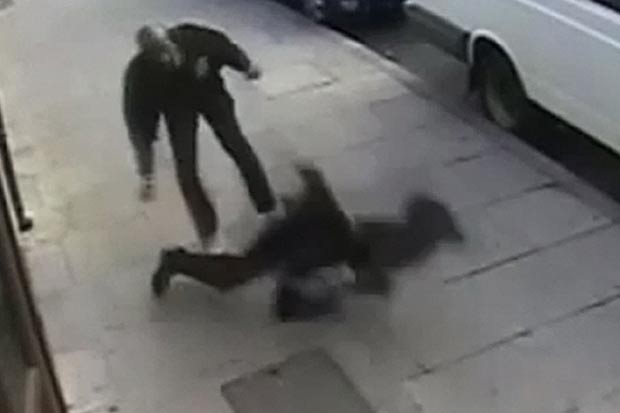Last Monday the BBC ran a sensationalist report about an apparently dangerous rising tide of Islamophobia in London over the past 12 months. The “balanced” take took all of its cues from far left groups with vested interests in inflating hate crime figures, and was built around a dramatic case from three years ago, which was found by a court not to be motivated by anti-Muslim hate of any form.
The episode of Inside Out London was touted as “exploring the brutal reality of daily life for some Muslim women.” All across London, however, every form of hate crime was up in past year; homophobia up a third; Islamophobia up 70 per cent; Anti-semitism up 94 per cent. Yet, only one got this type of attention from the Beeb.
Near the beginning of the program the BBC briefly spoke to the man who runs the Metropolitan Police’s hate crime department. The Met provided the data, which the entire program was based around, and officer Mak Chishty was very clear in explaining that it would be a misrepresentation to describe the new figures as representing a spike in attacks.
“Over the past 12 months there has been a rise in the number of Islamophobic incidents which have been reported to us… that does not mean that there is more offending,” he said. In fact, “That means there are better ways of recording it, and I’m really please about that.”
However, the BBC then preceded to do precisely the opposite: scaremonger.
The vast majority of the program there out was made up of what the BBC claims is “legitimately reported challenges [to] this view with voices from various stakeholders including Tell Mama, Jan Trust and Faith Matters” – all far left and/or Muslim interest groups with a vested interest in reporting high levels of anti-Muslim hate crime.
Tell Mama, for example, is an organisation which encourages the reporting of perceived hate crime, who lost their government backing in 2013 for “exaggerating” what they called a “wave of attacks,” “Islamophobic incidents” and a “cycle of violence” following the murder of Lee Rigby – over half of the “attacks” turned out to be comments left online.
Most of the examples cited in the film are anecdotal; women goaded by the BBC and Tell Mama into giving a grievance story. The prominently featured, stand out example was perpetrated by a Nigerian male on an Asian female, in what a judge previously called a “vicious” but “unprovoked” random attack.
But the BBC told Breitbart London that the footage was used as a generic example of violence and not directly linked as an example of the Islamophobic rise in the last twelve months and that they never claimed Islamophobia.
Yet, across multiple BBC sources – here, here, and here for example, and earlier in their statement to us, the BBC portrayed the episode as a look at Islamophobia. Why then, would this one clip in a whole programme, be about something different?
“The point we are making by using this CCTV is that Muslim women who wear the veil become a target and they fear attacks – whatever the motivation,” say the BBC in their background. The spokesman added that the “attack is the kind of incident women increasingly fear.”
The BBC further justified the move by claiming that other media outlets had reported the case as being motivated by her “appearance”. This implies something to do with her hijab. But the court argued against Michael Ayoade in 2012 that he reacted because he thought she “didn’t have a friendly face.”
That’s not the same as being motivated by her Muslim appearance, in particular, as is implied, because of her headscarf. The BBC is clearly playing fast and loose with the facts.
Furthermore, the BBC could not explain to us why they featured a three-year old case, in film about crimes in the past 12 months, without informing viewers when it was committed – therefore implying it was recent.
Taking cues from the BBC, the story began to spread across the Internet. The Daily Mail ran the clip as an “example of the Islamophobic attacks” of the past year; the Independent said it “demonstrates rise in hate crime in London;” and the Evening Standard said it “reveal[s] the reality of an increase in hate crime in London.”
A BBC spokesman told Breitbart London: “This half an hour special explored in a thorough and balanced way the concern women living behind the veil experience from rising hate crime and we stand by our journalism.”

COMMENTS
Please let us know if you're having issues with commenting.